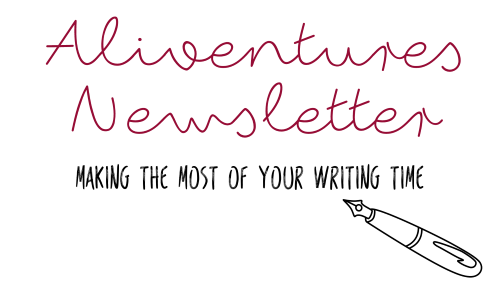Getting feedback from a beta-reader or a workshop group is absolutely invaluable ... but what should you do if you don't agree with their feedback?
Let's say your beta-reader finds one of your characters "whiny and
annoying" ... but your character has gone through a whole lot of suffering and has every right to be a bit angsty.
You might feel torn over what to do. Should you completely change the character? Should you
make them more stock -- or at least more silent? Or should you do nothing?
It can be really tricky to decide (and generally there's no one "right" choice on how to take feedback on board).
You may like to:
#1: Let the Feedback Sit for a While
It's best not to make any snap decisions about difficult feedback ... especially if you're feeling defensive or upset.
Give yourself some time to take in what your beta-reader has said. A point
that seems totally wrong to you right now could land differently in a week or two, when you've had a chance to think about it.
Conversely, an idea that you think maybe would be better might be easier to see clearly after some time has passed -- perhaps it's a great idea in itself, but it's simply not quite right for your novel.
#2: Stick to Your Authorial Vision
As the author, you're in control. You have a vision for your story and it's up to you to decide how best to honour that vision.
Sometimes, a beta-reader may offer
feedback that would take your story in a whole different direction, or that would undermine a key theme or message in your story. It's fine to decide against taking this feedback on board.
#3: Get Feedback from Other Readers
If you've only got one beta-reader, then
it's hard to figure out what feedback is representative of readers in general ... and what feedback simply reflects this one person's ideosyncrasies or outlook.
It's a particularly good idea to get more feedback if your beta reader isn't in your target audience. They may think your romantic hero is "cliched and over the top" ... but your ideal readers could think he's just
perfect.
#4: Consider Different Ways to Incorporate the Feedback
Sometimes, a beta-reader will point out a problem (e.g. "this character comes across as whiny and annoying") and also offer a solution (e.g. "make them less whiny"). But there may be a different way you
can solve the problem -- for instance, perhaps you need to make it clear how much trauma that character has suffered.
There's usually more than one way to approach a particular piece of feedback. You may want to think through some different options, and even try writing a few short draft pieces to see what could work best for your story.
Feedback is a gift ... and it's up to you how to use it. By all means consider each bit of feedback carefully, but if you feel that a particular suggestion isn't right for your story, don't feel you have to take it on board.
Ultimately, you're the author ... and you get the final
say.
Happy writing,
Ali
P.S. If you missed last week's blog post, you can find it here:
22 Tips for Writing Fiction (Whatever Stage You’re At)

